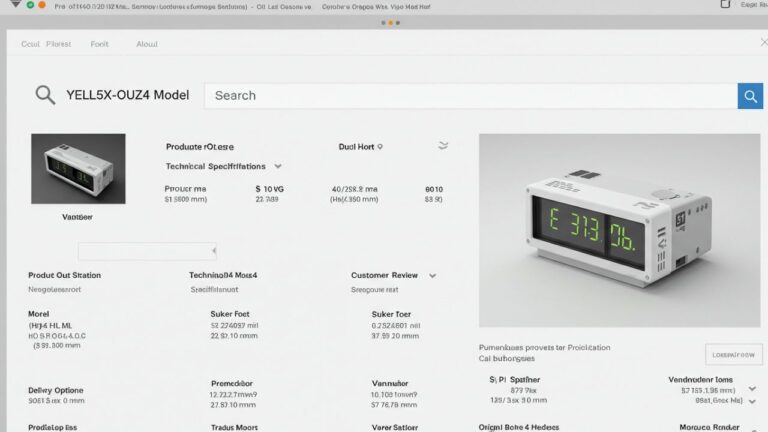FintechZoom Stock Futures: Market Trends, Predictions, and Investment Strategies

FintechZoom Stock Futures
Introduction: FintechZoom Stock Futures and Market Outlook
FintechZoom stock futures provide traders with real-time data, market insights, and expert analysis. Investors rely on stock futures to predict market movements before the opening bell. These futures contracts represent agreements to buy or sell stocks at a predetermined price on a future date. Understanding stock futures helps traders manage risk and capitalize on price fluctuations.
Stock futures reflect investor sentiment and economic conditions. Major financial institutions, hedge funds, and retail traders monitor futures to make strategic investment decisions. FintechZoom stock futures cover essential market indicators, including S&P 500 futures, Nasdaq futures, and Dow Jones futures. Analyzing these trends helps traders anticipate market shifts and develop winning strategies.
Understanding Stock Futures: Basics and Functionality
Stock futures play a critical role in financial markets. These contracts allow investors to hedge against market fluctuations and capitalize on short-term opportunities.
How Stock Futures Work
Stock futures represent a financial contract between two parties. One party agrees to buy a stock at a set price, while the other agrees to sell.
- Futures contracts have expiration dates, affecting trading strategies.
- Investors use margin accounts to trade futures, leveraging capital for larger positions.
- Stock futures track indices like the S&P 500, Nasdaq, and Dow Jones.
Types of Stock Futures
Stock futures come in various forms. Traders choose contracts based on risk tolerance and investment objectives.
- Index futures: Track major stock indices like the S&P 500 and Nasdaq.
- Single-stock futures: Represent individual company shares rather than broader indices.
- Sector futures: Focus on specific industries like technology, healthcare, or energy.
FintechZoom Stock Futures on Market Trends and Economic Indicators
Economic conditions influence stock futures pricing. Traders analyze financial indicators to forecast market trends and investment opportunities.
Key Economic Indicators Affecting Stock Futures
Stock futures react to macroeconomic trends. Understanding these indicators helps investors make informed trading decisions.
- Inflation reports influence interest rate expectations and investor sentiment.
- Federal Reserve policy decisions impact stock market movements and futures pricing.
- Employment data provides insights into economic strength and corporate earnings potential.
Global Market Trends Impacting Stock Futures
International markets affect stock futures pricing. Global economic trends create opportunities and risks for traders.
- Geopolitical events trigger market volatility and futures contract adjustments.
- Currency fluctuations impact multinational corporations and stock index futures.
- Supply chain disruptions create market uncertainty, influencing futures contracts.
FintechZoom Stock Futures: Investment Strategies for Traders
Stock futures trading requires a well-defined strategy. Investors use various techniques to maximize returns while minimizing risks.
Day Trading vs. Swing Trading Stock Futures
Traders select strategies based on market conditions, risk appetite, and investment goals.
- Day trading focuses on short-term price movements, closing positions within a single day.
- Swing trading involves holding futures contracts for multiple days to capture price swings.
Hedging Strategies for Risk Management
Stock futures provide effective hedging tools for investors. These strategies reduce exposure to market volatility.
- Portfolio hedging protects against stock market downturns using futures contracts.
- Options on futures offer additional flexibility and risk management benefits.
- Inverse futures allow traders to profit from declining stock prices.
FintechZoom Stock Futures on Major Indices: S&P 500, Nasdaq, and Dow Jones
Index futures dominate stock futures trading. These contracts track major stock indices and offer broad market exposure.
S&P 500 Futures: Market Barometer
S&P 500 futures reflect the overall market sentiment. Investors monitor these contracts to assess economic trends.
- Corporate earnings reports influence S&P 500 futures pricing.
- Interest rate expectations create fluctuations in S&P 500 futures contracts.
- Sector rotations impact futures trading strategies for large-cap stocks.
Nasdaq Futures: Technology and Growth Stocks
Nasdaq futures track technology and growth stocks. Investors use these contracts to trade high-volatility stocks.
- Tech earnings impact Nasdaq futures performance.
- Federal Reserve policies influence Nasdaq futures due to interest rate sensitivity.
- Investor sentiment in emerging technologies affects Nasdaq futures pricing.
Dow Jones Futures: Blue-Chip Stability
Dow Jones futures track 30 major U.S. companies. These contracts provide stability compared to tech-heavy indices.
- Economic growth influences Dow Jones futures movements.
- Dividend-paying stocks create demand for Dow futures contracts.
- Market corrections impact Dow Jones futures trading volumes.
Stock Futures Volatility: Managing Risk with FintechZoom Stock Futures
Market volatility affects stock futures trading. Investors adopt strategies to navigate unpredictable price swings.
Factors Contributing to Stock Futures Volatility
Stock futures prices fluctuate due to various economic and geopolitical factors. Traders monitor these elements to predict movements.
- Earnings season creates rapid price fluctuations in stock futures.
- Political uncertainty influences market sentiment, driving futures contract adjustments.
- Federal Reserve rate hikes affect investor confidence in stock index futures.
Risk Management Strategies for Stock Futures Trading
Effective risk management helps traders protect capital and maximize gains.
- Stop-loss orders prevent excessive losses by automatically closing positions.
- Position sizing ensures capital preservation and reduces exposure to sudden price swings.
- Diversification among different futures contracts balances risk in portfolios.
FintechZoom Stock Futures Predictions: Market Outlook and Expert Analysis
Analysts provide forecasts based on technical indicators and macroeconomic trends. Traders rely on these insights for future market direction.
Short-Term Stock Futures Predictions
Short-term predictions help traders anticipate immediate market movements. Experts assess technical patterns and economic conditions.
- Stock futures may experience volatility due to inflation data releases.
- Federal Reserve statements create market shifts in short-term futures contracts.
- Sector rotation trends impact individual stock futures trading opportunities.
Long-Term Stock Futures Outlook
Long-term forecasts consider economic cycles, corporate earnings, and global market trends.
- Technological advancements drive Nasdaq futures growth over extended periods.
- S&P 500 futures maintain stability due to diversified stock components.
- Dow Jones futures reflect blue-chip performance, offering long-term investment security.
Conclusion: FintechZoom Stock Futures Help Traders Stay Ahead
FintechZoom stock futures provide valuable market insights, helping traders make informed decisions. These futures contracts serve as essential tools for hedging risk and capitalizing on price movements. Investors track major indices, economic indicators, and geopolitical events to predict future trends.
Stock futures trading requires a solid strategy, risk management techniques, and continuous market analysis. Traders benefit from real-time updates, expert forecasts, and financial data available on FintechZoom. Whether focusing on short-term trading or long-term investments, understanding stock futures enhances market success.
By staying updated with FintechZoom stock futures, investors navigate financial markets with confidence. Adapting strategies to market conditions ensures profitability and risk control in an ever-changing economic landscape.






